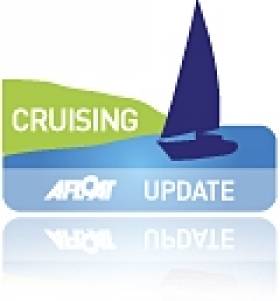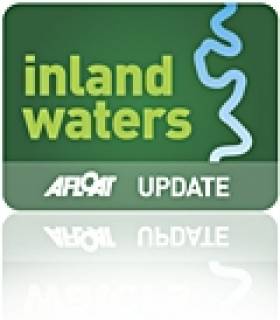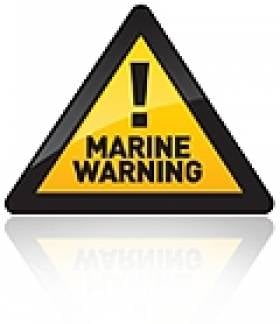Displaying items by tag: hazard
Dead Floating Cows Can Be Navigational Hazards
#deadcow – Round–the–World Yachtsman and Afloat.ie reader Pat Murphy says he enjoyed our story about the weekend rescue of a cow by the RNLI in Waterford. Unfortunately, Pat and his wife Olivia related a tale where they came across another cow in the same area (above) that was not so lucky. 'We came across him/her about six miles south of Hook Head while on passage from Waterford to Padstow in Cornwall on August Monday last in our yacht Aldebaran', Pat told Afloat.ie.
'I reported it to Rosslare Coastguard Radio as a navigational hazard. It was so bloated I think that to make contact with it could result in a not very nice shower!' he said.
Transit Van is Hazard to Navigation
#INLAND – Waterways Ireland has advised masters and owners that a hazard to navigation exists abeam of the floating moorings downstream of the town bridge at Carrick-on-Shannon as a result of a transit van inadvertently entering the navigation from the vicinity of the car park.
A yellow marker indicates the general location of the hazard. Masters are advised to proceed at slow speed and with due caution when navigating and manoeuvring in the vicinity of the marker.
Coastal Flooding Risk Warns Irish Water Safety
Flood conditions expose the public to hazards they need to be aware of. Fast moving water can exert pressure of up to four times its speed against the legs of someone attempting to cross it. Because water displaces bodyweight, the deeper a person becomes immersed the less the person weighs so the more difficult it is to remain upright. Never put ones feet down if swept away in floodwater, because foot and body entrapments and pinning are the leading cause of accidental death in rivers and fast flowing water.
Motorists need to be vigilant to avoid flooded areas on roads but particularly near rivers; with poor light and short days it is not possible to determine the depth of floods easily. Swift water will carry cars and other vehicles away and there have been very tragic drownings in the past as a result.
Children are naturally curious about water, therefore parents should caution them that floodwater hides the true depth and that manhole covers may be open and that small streams when swollen are very fast and deeper than normal.
What should I do when I hear a Flood Warning?
· Listen to the national and local radio for met eireann updates and AA Road watch updates
· Check on neighbours particularly if they are elderly, infirmed or families with young children
· Move your vehicles to higher ground
· Move animal stock to higher ground
· Check your small craft to ensure they are well secured or moored
· Make sure you have warm clothes, food, drink, a torch and radio.
· Block doorways and airbricks with sandbags or plastic bags filled with earth. Floodgate products will also work effectively.
· Switch off gas and electricity supplies if flooding is imminent.
· Check the time of High Water in the Newspaper or on http://easytide.ukho.gov.uk/EASYTIDE/EasyTide/SelectPort.aspx
· Check out www.flooding.ie for more detail on General flooding
Personal Safety
· Avoid flood waters at all times
· carry a mobile phone at all times in case you need to call for help - call 112 in emergency
· Wear suitable protective clothing & a lifejacket on or around water
· Do not enter fast flowing water.
· Never put your feet down if swept away by fast flowing waters
· Flooding on roads will be deeper at dips and around bridges.
· Stay away from sea and flood defences.
· when walking or driving, be aware of manhole covers and gratings that may have been moved due to the heavy flow of water.
· Take care when using electric appliances in damp or flood conditions.
· Remember that during the hours of darkness the dangers are multiplied.
After the flood
· Avoid eating food that has been in contact with flood water.
· Run water for a few minutes and wash your taps.
· Check gas and electricity supply.
· Leave wet electrical equipment alone to dry and have it checked prior to use.
· Ventilate your property well.
· Check on elderly neighbors.































































